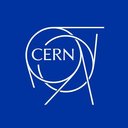CERN
ATLAS Trigger Reconstruction using AI/ML (EP-ADT-2024-54-GRAP)
Job Description
Job Description
Your responsibilities
The objective of the project is the introduction of novel selections in the ATLAS trigger to enhance selecting events in challenging parts of the parameter space, including exotic signatures and rare Standard Model processes, and to improve the robustness of the muon trigger. Together with NexGen doctoral students, the selected candidate will work on either trigger menu development or design new algorithms for the Level-0 Muon trigger.
In the trigger menu activity area, she or he will develop the necessary tools to advance studies of the HL-LHC trigger menu. The selected candidate will more specifically develop simulation of trigger selections and tools for the estimation of trigger rates using existing data as well as Monte Carlo simulations generated in HL-LHC conditions. She or he will work on identification of poorly covered topologies and develop new algorithms (including with use of ML/AI) and new triggering approaches in order to specifically target those, ensuring that they fit into the trigger menu constraints in terms of both processing resources and allocated rate.
In the Level-0 Muon activity area, the selected candidate will develop new algorithms to improve the robustness of the Level-0 Muon trigger against changing detector conditions and to enhance triggering on challenging signatures such as exotic long-lived particles. She or he will identify detector scenarios and challenging trigger signatures and develop new algorithms to target them using tools such as simulations. New algorithms include the use of AI/ML. The selected candidate will work in close collaboration with ATLAS trigger experts and the TDAQ upgrade community. Up to three positions will be filled as part of the Next Generation Trigger program (https://cern.ch/nextgen-proposal).
Your profile
Skills and/or knowledge
Required skills:
- Strong background in collider physics
- Strong software skills
- Excellent communication and presentation skills
- Excellent knowledge of oral and written english
- Experience or desire to supervise students
Would be an asset:
- Experience in AI/ML
- Experience with trigger systems
- Trigger menu developments
- Experience with FPGAs and digital electronics
Eligibility criteria:
- You are a national of a CERN Member or Associate Member State.
A limited number of positions are also available to candidates from Non-Member States. - You have a professional background in Particle physics / computer science (or a related field) and have either:
- a Master’s degree with 2 to 6 years of post-graduation professional experience;
- or a PhD with no more than 3 years of post-graduation professional experience.
- You have never had a CERN fellow or graduate contract before.
Additional Information
Job closing date: 28.04.2024 at 12:00 AM (midnight) CEST.
Job reference: EP-ADT-2024-54-GRAP
Contract duration: 24 months, with a possible extension up to 36 months maximum.
Target start date: 01-May-2024
This position requires:
- Stand-by duty, when required by the needs of the Organization.
- Work during nights, Sundays and official holidays, when required by the needs of the Organization.
What we offer
- A monthly stipend ranging between 6194 and 6808 Swiss Francs per month (net of tax).
- Coverage by CERN’s comprehensive health scheme (for yourself, your spouse and children), and membership of the CERN Pension Fund.
- Depending on your individual circumstances: installation grant; family, child and infant allowances; payment of travel expenses at the beginning and end of contract.
- 30 days of paid leave per year.
- On-the-job and formal training at CERN as well as in-house language courses for English and/or French.
About us
At CERN, the European Organization for Nuclear Research, physicists and engineers are probing the fundamental structure of the universe. Using the world’s largest and most complex scientific instruments, they study the basic constituents of matter – fundamental particles that are made to collide together at close to the speed of light. The process gives physicists clues about how particles interact, and provides insights into the fundamental laws of nature. Find out more on http://home.cern.
We are on a Quest. A Journey into discovery like no other. Bring your expertise to our unique work and develop your knowledge and skills at pace. Join world-class subject matter experts on unique projects, in a Quest for greater knowledge and deeper understanding.
Begin your CERN Quest. Take Part!
Diversity has been an integral part of CERN’s mission since its foundation and is an established value of the Organization. Employing a diverse workforce is central to our success.



